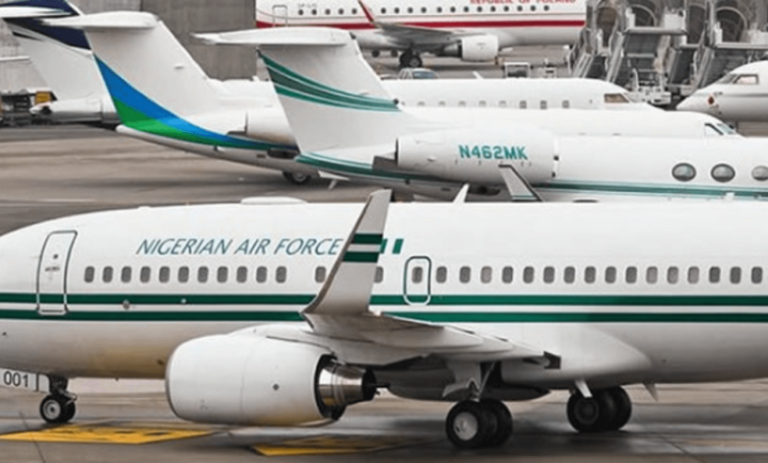From Juliana Taiwo-Obalonye, Abuja
Civil Society Legislative Advocacy Centre (CISLAC) and Transparency International Nigeria (TI-Nigeria) have called on state governors to enhance due diligence and legal consultations during contract negotiations.
The organisations made the call following the recent seizure of three Nigerian presidential jets by a French court, linked to a contractual dispute between the Ogun State Government and a Chinese firm, Zhongshan Fucheng Industrial Investment Co. Ltd.
They said prioritising legal processes is crucial to prevent similar occurrences in the future and to uphold accountability in governance.
In a statement from its Executive Director, Auwal Rafsanjani, CISLAC and TI-Nigeria expressed deep concerns over the ongoing legal dispute stemming from a 2007 agreement related to the Ogun Free Trade Zone.
Rafsanjani said the fallout from the poorly managed contract has led to substantial financial losses and damaged Nigeria’s international standing. The organisations stress the importance of rigorous legal oversight in contract negotiations to prevent similar occurrences in the future, urging state governors to take proactive measures in safeguarding public resources.
“State governors and government officials must fully understand the legal and ethical complexities of international agreements before entering into them. Nigeria is already grappling with numerous socio-economic challenges, and the last thing we need is to be entangled in costly legal disputes that could have been avoided with proper due diligence,” Rafsanjani said.
He criticised the Federal Government for permitting state governors to access loans without sufficient risk assessment and said personal interests often lead public officials into detrimental agreements, drawing parallels to the infamous P&ID case.
“CISLAC/TI-Nigeria’s call serves as a reminder of the need for vigilance and ethical governance in handling international contracts to prevent severe repercussions from mismanagement.
“CISLAC and Transparency International have diligently monitored and advocated global transparency and accountability, particularly since the initial arbitration order in the P&ID case in 2017, which mandated Nigeria to pay $6.6 billion in fines due to contractual breaches. This amount ballooned to $11 billion due to accrued interest.
“During the legal battle in London to overturn this order, CISLAC and Transparency International collaborated with local and international organisations to demand a comprehensive investigation into all individuals implicated in sabotaging Nigeria’s interests. The prior administration’s failure to act on these calls was disheartening,” he said.
Rafsanjani credited the global advocacy efforts of CISLAC and TI-Nigeria that the country secured temporary relief through a UK court’s decision. CISLAC reiterated its calls on President Bola Tinubu and anti-corruption agencies to prosecute all Nigerians and their accomplices, including former senior officials, who were involved in colluding with P&ID for personal gain. He said CISLAC/TI-Nigeria’s statement reflects broader concerns about Nigeria’s management of international agreements and the severe consequences of neglecting due diligence.
“As the country navigates this complex legal situation, it is crucial to remember the need for vigilance and ethical governance in contract negotiations,” Rafsanjani said.
